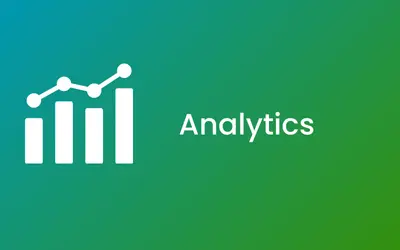Seattle, a bustling city in the Pacific Northwest, is home to several universities offering top-notch analytics courses. These courses prepare learners to harness the power of data and transform it into valuable insights that drive business growth and innovation. Seattle is a leading center for technology and software development in the United States, with companies such as Microsoft, Amazon, and Google having a significant presence in the area. Thus, the demand for skilled data analysts and scientists is high, making it a great place to pursue an analytics course. One exceptional course in Seattle is the Master of Science in Data Science program offered by the University of Washington. This program, designed for students with a background in computer science, statistics, engineering, or a related field, prepares them to manage and analyze large datasets effectively. The curriculum covers a broad range of topics, including data mining, machine learning, statistical methods, and database management. The course also emphasizes the importance of critical thinking and problem-solving skills, preparing graduates for data-driven decision-making in a vast array of industries. Another excellent analytics program in Seattle is the Master of Science in Business Analytics offered by the Foster School of Business at the University of Washington. The program focuses on building analytical skills to help businesses leverage data to gain a competitive edge. Students can expect to learn how to apply statistical techniques to business problems, perform data analysis, and design and optimize decision-making models. Graduates of the program have gone on to secure top jobs in industries such as finance, technology, and healthcare. For those looking for a more flexible curriculum, the University of Washington's Professional and Continuing Education offers a certificate program in Data Analytics. This program allows learners to customize their learning path by selecting from a range of courses that cater to specific industry needs and goals. Throughout the program, students will gain hands-on experience with popular software tools such as Tableau, Python, and R, and learn how to collect, analyze, and interpret data to make informed business decisions. Seattle is also home to several other reputable schools offering analytics courses, including Seattle University, which offers a Master of Science in Business Analytics program, and the Bellevue-based City University of Seattle, which offers both undergraduate and graduate-level analytics courses. In conclusion, with its vibrant technology industry and excellent academic institutions, Seattle is an excellent location to pursue an analytics course. The courses offered in the area cover a broad range of topics and are designed to cater to specific industry needs and goals. Students can expect to receive a world-class education, gain hands-on experience with popular software tools, and be prepared for a rewarding career in data analysis and beyond.

₹60,000


Watch how students, freshers, and professionals transformed their careers with Skillfloor's Analytics Courses Reviews
Hurry Up!
Limited seats call us now for amazing discounts on Analytics Courses course



Skillfloor is a Government-Recognized Skill Development Institute under Startup India (DPIIT), offering career-focused certification programs in Analytics, Artificial Intelligence (AI), Data Science, Digital Marketing, SEO, and related domains. As one of India's largest training institutes, our courses emphasize hands-on projects, expert mentorship, and skills aligned with real hiring needs. With flexible learning options - online, offline, and hybrid, plus 100% scholarships for selective students, we make quality, job-ready education accessible.
Explore the program that aligns with your goals and take the next step with Skillfloor.



- Overview of data analysis and its importance in business
- Types of analytics: Descriptive, Predictive, Prescriptive
- Role of data in decision-making processes
- Introduction to common tools: Tableau, PowerBI, Excel
- Ethical considerations in data collection and analysis
- Data sources: Primary and secondary data
- Data collection methods (surveys, web scraping, databases)
- Data cleaning techniques (handling missing values, outliers)
- Data transformation and feature engineering
- Data storage concepts (structured vs. unstructured data)
- Descriptive statistics: Mean, median, mode
- Data visualization basics (histograms, scatter plots)
- Identifying data patterns and trends
- Outlier detection and handling methods
- Correlation and causation analysis
- Inferential statistics and probability theory
- Hypothesis testing (t-tests, chi-square tests, ANOVA)
- Measures of central tendency and variability
- Confidence intervals and margin of error
- Regression analysis: Linear and logistic regression
- Principles of effective data visualization
- Types of charts and their uses (bar, line, pie, heatmaps)
- Designing dashboards for different audiences
- Interactive visualization techniques
- Data storytelling for impactful presentations
- Time series analysis and forecasting methods
- Clustering and segmentation analysis
- Decision trees and classification techniques
- Introduction to machine learning in business analytics
- Model evaluation and selection
- Basics of SQL for data manipulation
- Creating databases and relationships
- Aggregating data with SQL (GROUP BY, JOIN)
- Data modeling for business intelligence (star and snowflake schemas)
- Case study: Building a business model with SQL
- Connecting and preparing data in Tableau
- Creating basic visualizations (charts, maps)
- Advanced Tableau functions (LOD calculations, table calculations)
- Building interactive dashboards and stories
- Publishing and sharing visualizations on Tableau Server/Online
- Introduction to PowerBI workspace and components
- Data import and transformation with Power Query
- Data modeling and relationships in PowerBI
- Creating and customizing visualizations
- Publishing and collaborating on PowerBI Service
- Selecting a real-world dataset for analysis
- Defining business questions and objectives
- Conducting data analysis and visualization
- Presenting findings in a comprehensive dashboard
- Peer review and feedback on project